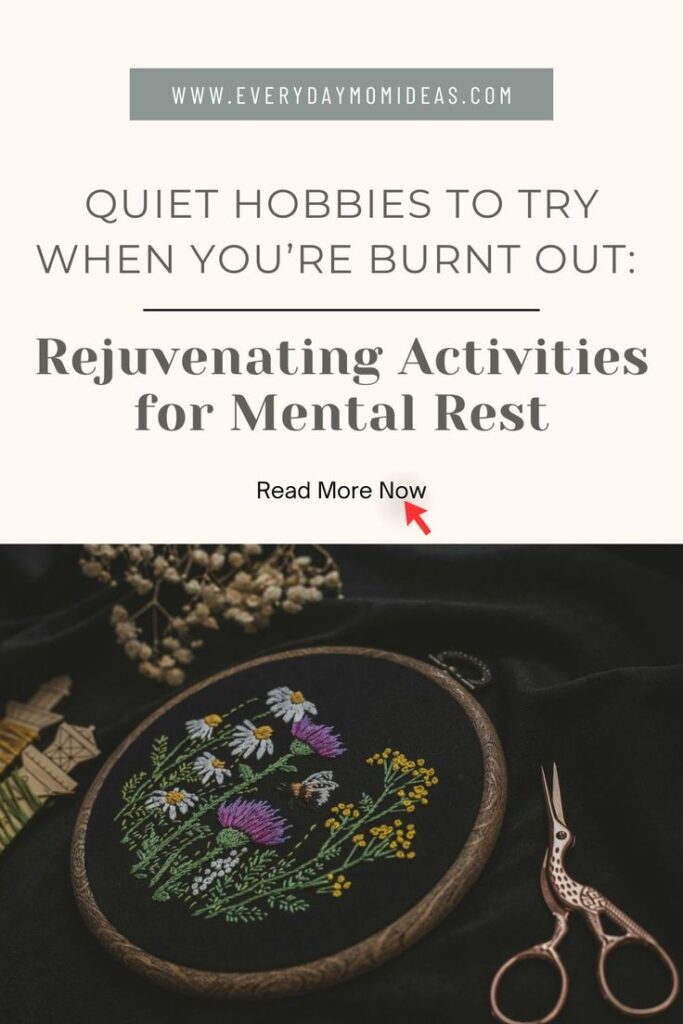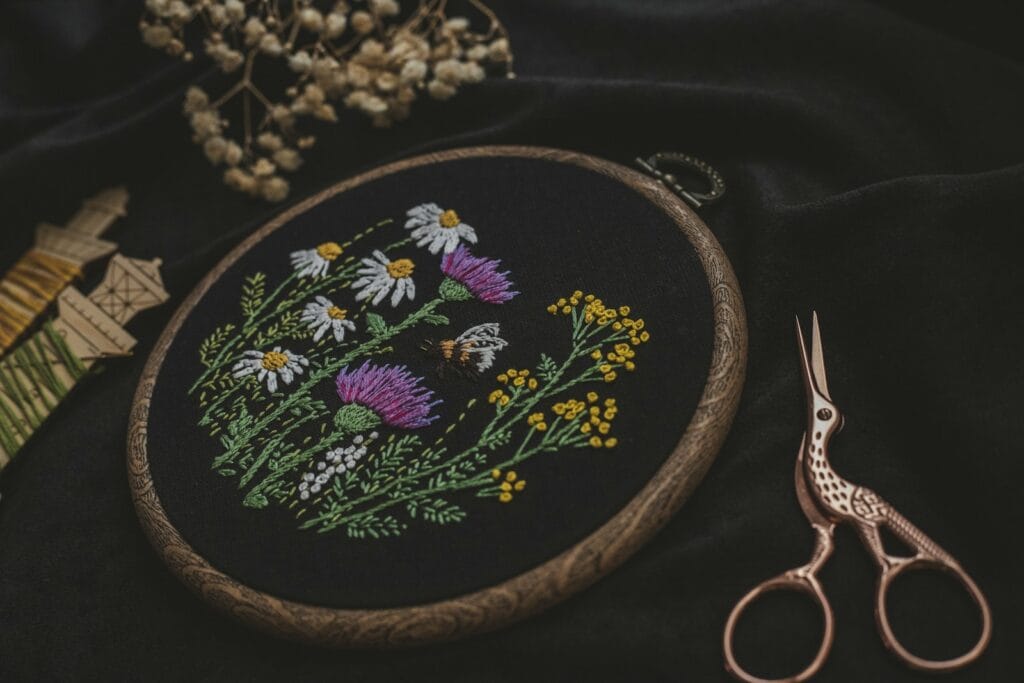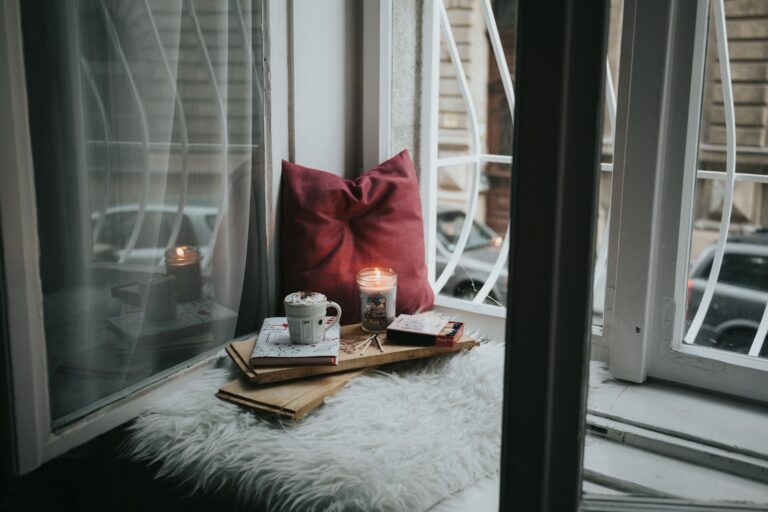Feeling too tired to do anything fun? Trust me, you’re not the only one. When life zaps your energy, even your go-to activities can seem like a chore. Quiet hobbies are a gentle way to recharge—without making you feel like you’re adding more to your plate.
Unlike high-energy activities that take a lot out of you, quiet hobbies boost mental health but don’t require much effort. Simple things—like reading, gentle yoga, or working on a puzzle—can give your mind a breather while still letting you enjoy yourself. They work because they break up the constant demands that probably led to burnout in the first place.
When you’re burnt out, just picking a hobby can feel like a lot. That’s why here’s a handful of super easy, low-pressure activities that don’t take much setup or energy. These hobbies can help you find some calm and maybe even a little joy, even when you feel totally drained.
Key Takeaways
- Quiet hobbies like reading, yoga, and puzzles help your mind and body relax and don’t take much effort.
- Even 15 minutes of a calming activity can help lower stress and improve your mood.
- Nature-based quiet activities—think gardening or bird watching—bring you into the present and can help break up negative thought patterns.
Why Quiet Hobbies Help When You’re Burnt Out
Quiet hobbies give your mind space to breathe and recover from daily pressure. They’re a gentle way to lower stress, offering meaningful things to do that don’t sap your limited energy.
Understanding Burnout
Burnout shows up after long-term stress leaves you feeling wiped out, empty, and unable to keep up with daily stuff. You might notice you’re always tired, not performing as well at work, or just not interested in things you used to like.
Burnout affects both your mind and body, making it tough to stay productive or find joy in much of anything. It tends to creep up slowly, so sometimes you don’t even realize it’s happening until you’re stuck in the thick of it.
This isn’t the kind of tiredness that disappears after a good night’s sleep or a weekend off. It takes real recovery and some changes to your routine to start feeling better.
Stress Relief and Mental Health Benefits
Quiet hobbies are natural stress relievers. When you do something calm and enjoyable, your heart rate slows and stress hormones drop.
Studies show that making time for things you like is good for your mental health. Quiet hobbies let you be present, giving your brain a break from worrying or planning.
Activities like reading, knitting, or gardening can:
- Lower anxiety
- Lift your mood
- Help you focus
- Give you a sense of accomplishment
That’s especially helpful when you’re burnt out and need a gentle way to rebuild your reserves.
The Importance of Self-Care and Rest
Self-care isn’t selfish—it’s actually necessary. Quiet hobbies are a simple way to fit self-care into your day without piling on more expectations.
Small, silent activities can really help. They set boundaries for your energy, but you still get to do something meaningful.
Rest isn’t just about your body. Your mind needs downtime too, to process things and restore balance. Quiet hobbies offer that mental rest while still keeping your hands busy or your mind gently occupied.
Making time for restful activities is a way to show yourself some respect. It can boost your confidence and help you set better boundaries elsewhere.
Creative and Artistic Quiet Hobbies
Creative activities can help you unwind and express yourself, especially when you’re feeling burnt out. They give your mind something positive to focus on and let you escape daily stress for a bit.
Drawing and Coloring
Drawing is one of the easiest quiet hobbies to pick up when you’re overwhelmed. All you need is a pencil and some paper. A lot of people find that doodling or sketching—like when they were kids—really helps calm their mind.
Adult coloring books are everywhere now, and for good reason. They’re great if you want to be creative but aren’t sure where to start. You can pick from tons of themes:
- Mandalas and patterns
- Nature and animals
- Fantasy scenes
- Outlines of famous art
Coloring can actually reduce anxiety. Picking colors and staying inside the lines is oddly soothing.
Try keeping a little sketchbook nearby for quick drawing breaks. It can turn a few spare minutes into a creative reset.
Crocheting, Knitting, and Crafting
Textile arts like crocheting and knitting mix repetitive motion with creativity. The rhythm of your hands can be super calming.
If you’re new, start with something simple—like a dishcloth or scarf—so you don’t get frustrated. YouTube is packed with tutorials for beginners.
Other crafting ideas:
| Craft Type | Materials Needed | Difficulty Level |
|---|---|---|
| Scrapbooking | Photos, paper, glue | Beginner |
| Origami | Paper | Beginner to advanced |
| Model building | Kits, glue, paint | Intermediate |
Making things with your hands is satisfying, and finishing a project can give you a mood boost.
Short crafting sessions—maybe 15 or 30 minutes—can help you take breaks that actually feel refreshing.
Painting and Paint by Number
Painting is a great way to escape stress. You don’t need to be “good” at it—honestly, you get better with practice.
Paint by number kits are awesome for beginners. They come with everything: a canvas, paint, brushes, and the numbers make it easy to get started.
Watercolor painting is another option that feels less intimidating than oils or acrylics. The way watercolors flow is calming in itself. Some ideas:
- Play with wet-on-wet for abstract shapes
- Try simple trees or mountains
- Make little greeting cards with small paintings
Painting in natural light can lift your mood and make your colors pop. Even 20 minutes can be enough to reset your brain.
Journaling and Creative Writing
Writing is a way to process your thoughts and feelings. Journaling, in particular, helps organize your mind during stressful times.
You could try:
- Gratitude journals
- Stream-of-consciousness writing
- Bullet journaling (a mix of planning and creativity)
- Visual journals (writing plus doodles)
Creative writing doesn’t have to be a big deal. Write a six-word story or describe something ordinary in detail—small exercises can be surprisingly satisfying.
Set up a comfy writing spot if you can. Even a corner with good light and a cozy chair can help you focus.
Some people like digital journaling apps, but honestly, writing by hand often feels more personal and grounding.
Relaxing Quiet Hobbies for Mind and Body
Sometimes you need activities that calm both your mind and body. These hobbies help you find peace in your day, without a lot of noise or fuss.
Meditation and Mindfulness
Meditation is one of the most relaxing hobbies you can try when you need a reset. No fancy gear required—just a quiet spot and a few minutes.
Start with five minutes of mindful breathing. If you’re new, there are plenty of apps with guided sessions to walk you through it.
Mindfulness isn’t just about sitting still. You could try:
- Mindful eating (really noticing flavors and textures)
- Body scans (checking in with how you feel head to toe)
- Mindful walking (paying attention to each step)
- Breathing exercises (count your breaths, slow things down)
A lot of people find that meditating in the morning sets a calm tone for the day. Others like it at night to help with sleep.
Yoga, Stretching, and Gentle Movement
Gentle movement is a great way to relax both your body and mind. Yoga, for example, blends stretching, breathing, and mindfulness together.
Try beginner poses like:
- Child’s pose
- Cat-cow
- Forward folds
- Seated twists
Walking is another calming hobby that’s easy to start. A 15-minute walk around your block or in a park can clear your head.
Tai chi is another gentle option with smooth, flowing movements that improve balance and focus. There are lots of free videos online if you want to give it a shot.
The key is not to stress about how you look or how “good” you are. Just focus on how you feel.
Listening to Music and Audiobooks
Music can totally change your mood. Create playlists for different vibes:
- Instrumentals for focus
- Nature sounds for relaxation
- Old favorites for happy memories
Audiobooks are great if your eyes are tired. You can listen while doing chores, or just relax and let your mind wander.
Podcasts about stuff you’re interested in can be both soothing and interesting. Sometimes, hearing a story or a friendly voice is all you need.
If you can, use comfy headphones to block out noise and make your own little sound bubble.
Puzzles, Board Games, and Collecting
Puzzles keep your hands and mind busy, which is great for stress. Jigsaw puzzles are especially satisfying as you fit each piece in place.
Crosswords and sudoku are nice for a quick mental challenge. You can do them in short bursts whenever you have a minute.
Board games with family or friends can add a gentle social element. Pick cooperative games if you’re not up for competition.
Collecting can be really fulfilling—think stamps, coins, plants, books, or even cool rocks.
Some video games, like Animal Crossing, are super chill and let you play at your own pace. They’re a nice escape when you want something low-key.
Quiet Hobbies Close to Nature
Getting outside—even just a little—can really help you recharge. These activities let you soak up some peace and quiet in natural settings.
Gardening and Plant Care
Growing plants can be grounding. You don’t need a big yard—even a few pots on a balcony can bring joy.
If you’re new, start with easy plants like herbs or succulents. They’re low-maintenance but still satisfying to care for.
Bonsai care is another option if you want something slow and mindful. Trimming and shaping these tiny trees is a relaxing ritual.
Indoor plants like peace lilies or snake plants clean the air and only need a little attention. Watering and pruning can become a calming part of your routine.
Good starter plants:
- Succulents
- Basil or mint
- Spider plants
- Pothos
Bird Watching and Stargazing
Bird watching is as simple as finding a quiet spot and paying attention. You can do it in your backyard or a park—no fancy gear necessary.
A basic pair of binoculars and a bird guide can make it more fun. Notice different calls, colors, and behaviors.
Stargazing is similar—just look up after dark. Find a spot away from city lights to see more stars. Apps like Star Walk or Sky View help you figure out what you’re looking at.
Both hobbies are about slowing down and really noticing what’s around you. Sometimes, just watching birds or staring at the stars is enough to shift your mood.
Jot down what you see in a notebook. It adds a personal touch and helps you remember those moments.
Photography and Nature Walks
Taking photos outside gives you a reason to explore. You don’t need a fancy camera—your phone works fine.
Photography is great for introverts because it gives you something to do that doesn’t require small talk. Look for interesting textures, patterns, or little details.
Pair photography with gentle walks in parks, forests, or along the beach. These solo outdoor activities can really help when you’re burnt out.
Try photo themes like:
- Dew on spider webs in the morning
- Bark textures
- The same spot in different seasons
- Light and shadows through trees
Walking slowly and looking for photo ops helps you notice the little wonders you’d otherwise miss.
Fishing and Outdoor Relaxation
Fishing gives you a chance to just sit by the water and unwind. There’s something about casting a line and waiting quietly that feels almost meditative—it’s no wonder so many people swear by it when they need to decompress.
You don’t need fancy gear, either. A simple rod from the local sporting goods store does the trick. Most towns have a pond or lake where you can fish without needing a boat or much planning.
But hey, if fishing’s not your thing, just being near water can work wonders. Listening to waves or a bubbling creek can calm your nerves in a way that’s hard to explain but easy to appreciate.
If you’d rather move around, try biking by the water or swimming in a lake. Getting your body moving in nature can really help clear your head—sometimes more than you’d expect.
Bring along some snacks and maybe a comfy chair if you want to stay out longer. Honestly, sometimes the best days are the ones where you’re outside with no real plan at all.

Frequently Asked Questions
When you’re worn out, it’s tough to know what to do with yourself. Here are some quick answers to common questions about restful hobbies that might help when you’re burned out.
What calming activities can reduce feelings of burnout and stress?
Reading is a classic escape. Whether you dive into a novel or pick up something new, it’s a good way to give your brain a break from all the usual noise. You can fall into another world or just let your mind wander.
Gentle yoga is worth a try. It’s a gentle exercise that helps settle your mind and body, but it won’t wear you out.
Meditation and deep breathing don’t take much effort but can make a big difference. Even five minutes a day can help you feel a bit more grounded.
Which hobbies promote relaxation and mental well-being?
Knitting and crocheting are surprisingly soothing. The repetitive motion lets your mind drift while your hands stay busy.
Gardening—even if it’s just a couple of potted plants on your windowsill—can connect you to nature and give you a little sense of accomplishment.
Putting on calming music or nature sounds can help lower stress. It’s worth creating a playlist just for those moments when you need to relax.
What are some simple activities that require minimal physical effort?
Adult coloring books are great if you want something low-key. Focusing on the colors and the patterns is oddly calming.
Puzzles—whether jigsaw or word—are good for engaging your brain without needing much energy. You can pick them up and put them down whenever you feel like it.
Old-school hobbies like stamp or coin collecting are easy to do from your favorite chair and offer a nice distraction.
Can engaging in certain hobbies improve my mental health?
Creative stuff like doodling or writing can help you process feelings and lower anxiety. You don’t have to be an artist—sometimes just scribbling is enough.
Mindfulness-based hobbies teach you to focus on what’s in front of you, which can help break up those endless worry cycles.
Doing stress-relieving hobbies on a regular basis can make you more resilient when stress hits again.
What leisure activities are suitable for those with low energy levels?
Audiobooks and podcasts are a lifesaver when you’re too tired to read. You can listen while lying down, which is honestly pretty great.
Bird watching from your window or balcony takes almost no effort, but it’s oddly satisfying. If you want, keep a little list of what you spot.
Low-energy hobbies like collecting sea glass or pressing flowers are perfect for days when you only have a bit of energy to spare.
Which slow-paced hobbies can help in unwinding after a long day?
Gentle stretching before bed can quietly signal to your body that it’s time to wind down. Don’t worry about tough poses—just move slowly and pay attention to your breathing.
Keeping a gratitude journal doesn’t take long, but it can nudge your mind toward the good stuff. Try jotting down three things you liked about your day, even if they’re small.
Star gazing is about as slow-paced as it gets, and honestly, it can make your daily worries feel a little smaller. No telescope required—just step outside, get comfy, and look up at the night sky for a while.




